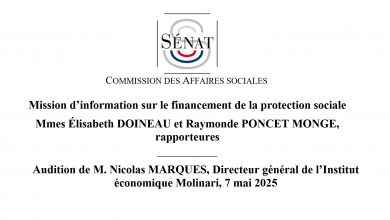Haro on cartels
Article published exclusively on the Institut économique Molinari’s website.
344 million euros. This is the fine inflicted by the European Commission on 31 May on five chemical companies accused of colluding between 1997 and 2002 on the price of acrylic glass, better known under the name of Plexiglas.
344 million euros. This is the fine inflicted by the European Commission on 31 May on five chemical companies accused of colluding between 1997 and 2002 on the price of acrylic glass, better known under the name of Plexiglas. Commenting on the judgment of the firms Arkema, Degussa, ICI, Lucite and Quinn Barlo implicated in this cartel, Neelie Kroes, the competition commissioner, declared: « Collusions are a plague. These fines will have the effect of a cold shower on the management and the shareholders of all these companies, who must understand that these practices can not be tolerated. »
One could not be less ambiguous. However, the co-operation between firms is not necessarily harmful to consumers. It can serve them and the European Commission is unable to rule in their place if such or such agreement serves them. If Europe can do anything for consumers, it is to let them to solve the question themselves.
Collusions have a bad press. It is undoubtedly the reason why few commentators are shocked by the methods employed by the European executive. After all, everything is good to fight a plague, even the technique consisting in exempting « culprits » from fines who denounce their « accomplices. » It is the case of Degussa which quite simply saw its fine of 264 million euros erased for having made a denouncement.
However, whatever one thinks of the favorable attitude of the Commission towards denouncement, the bad reputation of collusions is much less justified than it appears. A collusion indicates joint actions on behalf of different companies. From this point of view, they act as if they were only one company. Thus, a merger is nothing other than a fully ratified collusion. How is it then that mergers have a less bad reputation than collusions?
This is not all. The simple fact of founding a company implying the co-operation of at least two people supposes an agreement. Instead of acting as individual businessmen, carrying out their business in complete independence, people co-operate, jointly invest capital and engage employees. The fact that such associations are openly made does not change anything about their nature. They imply collusion. Does one then have to consider that an economy in which one would not have the right to take part in a productive activity unless it is as an individual businessman would be a paradise for consumers? Of course, the Commission would not claim that they would be better served thanks to the prohibition of any association between producers. It is however what the idea of the collusion « plague » implies.
Collusions between already existing companies should logically be regarded as intermediate stages between their strict independence and their merger. What can one then say about such practices from the point of view of consumers? Actually, nobody can make sure a priori that a collusion serves them or not. Provided that entry on to the market is not blocked by legal barriers, it is the consumers who sanction the best choices in this respect in directing their purchases towards the producers who serve them best. If a collusion or a merger does not bring anything to consumers, it does nothing other than invite competitors to enter on to the market to seize the opportunities for profits thus offered. It then fails and the intervention of a regulator is superfluous. If it brings something, the consumers reward it, provided that the regulator leaves them the opportunity. In this case, the outlawing of the collusion simply goes against their interests.
The regulation authorities are unable to replace the businessmen and the consumers to ensure the best services to the latter. They are on the other hand completely ready to prevent the consumers from giving their own verdict. In tackling the « collusions plague, » this is what they do.
Xavier Méra, Institut économique Molinari





